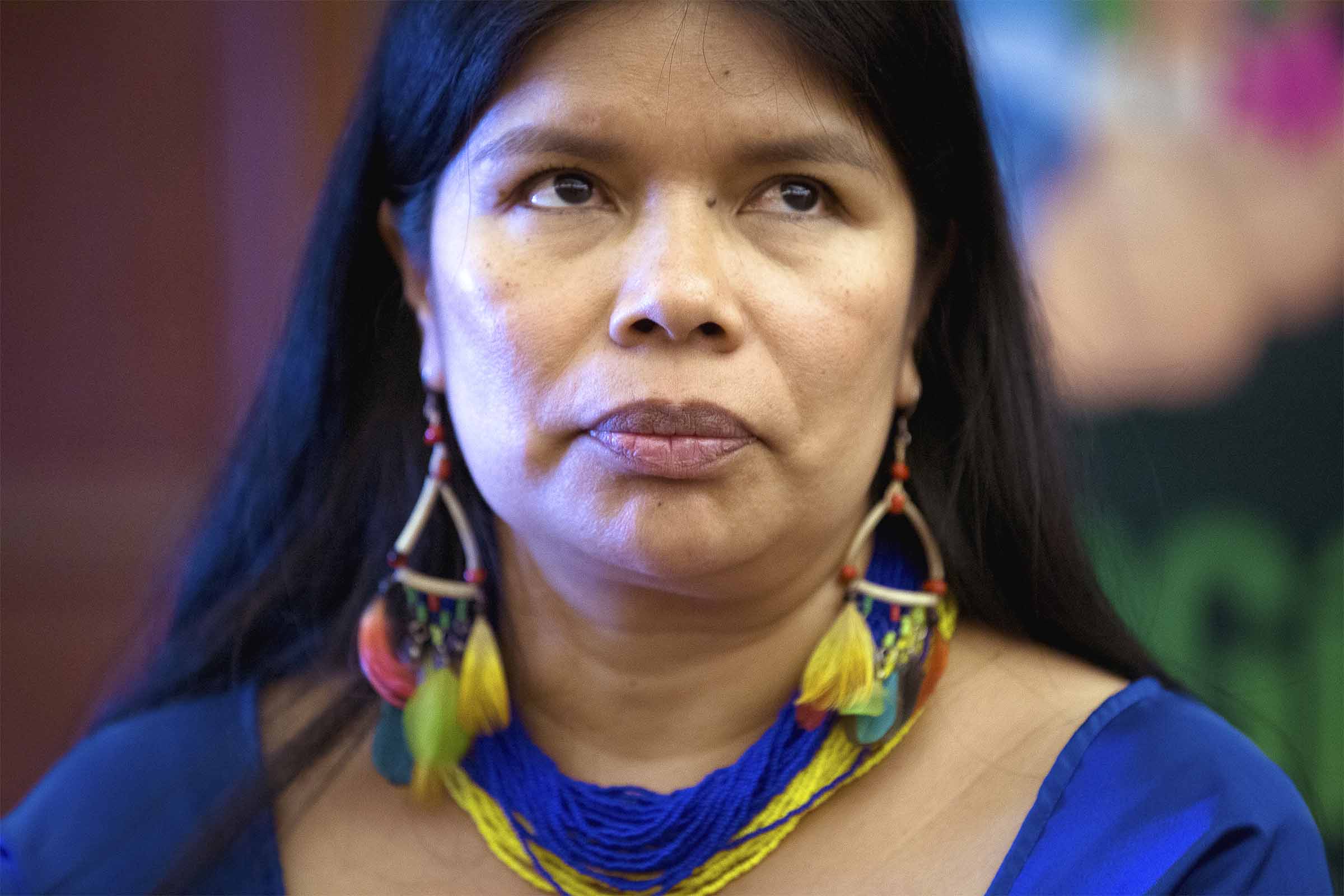By Rhina Guidos

WASHINGTON (CNS) – In indigenous Kichwa communities, women like Patricia Gualinga have traditionally taken on the role of wife, mother and cultivator of the crops that families use to survive in Ecuador’s Amazonian region of Sarayaku.
In recent years, however, as corporations and other entities looking to extract precious minerals and resources have entered indigenous communities’ ancestral lands in the Amazon, that role has expanded to include community leader and defender of the environment for women like 49-year-old Gualinga.
Women have increasingly participated as leaders at the national and international level in the Amazon’s environmental activist circles, she said, in part because women – in addition to experiencing firsthand environmental degradation and its impact on the family – also experience abuse, exploitation and greater marginalization that has skyrocketed with the exploitation of the environment.
Others were not discussing those abuses, that’s why women stepped up, Gualinga said in a March 22 interview with Catholic News Service, during an international “Integral Ecology” conference at Georgetown University in Washington. The conference was held in anticipation of an October Synod of Bishops on the Amazon at the Vatican.
Though the laity will not be able to vote at the synod, that does not mean women such as Gualinga, members of indigenous communities, and others won’t have a voice or an impact at the Vatican gathering, said Cardinal Claudio Hummes. The Brazilian cardinal is president of the Pan-Amazonian Church Network (REPAM for its acronym in Spanish), one of the main players for the Vatican meeting that plans to raise awareness and an action plan to fight environmental degradation and its consequences, such as global warming and displacement of indigenous communities in the Amazon region.
Women, including many from indigenous communities, have been invited to participate, including as auditors at the synod, allowing them to voice their growing concerns, said Cardinal Hummes.
“We recognize that when we speak about the church in the Amazon, women play a special part in it, a great part in it,” Cardinal Hummes said during a March 20 news conference at Georgetown.
Increasingly, many are at the forefront of physical attacks as conflicts over lands and resources grow.
Last year, Gualinga’s home was attacked with rocks and she was physically threatened following years of her activism against extractive industries that threaten Kichwa communities and lands in Ecuador.
